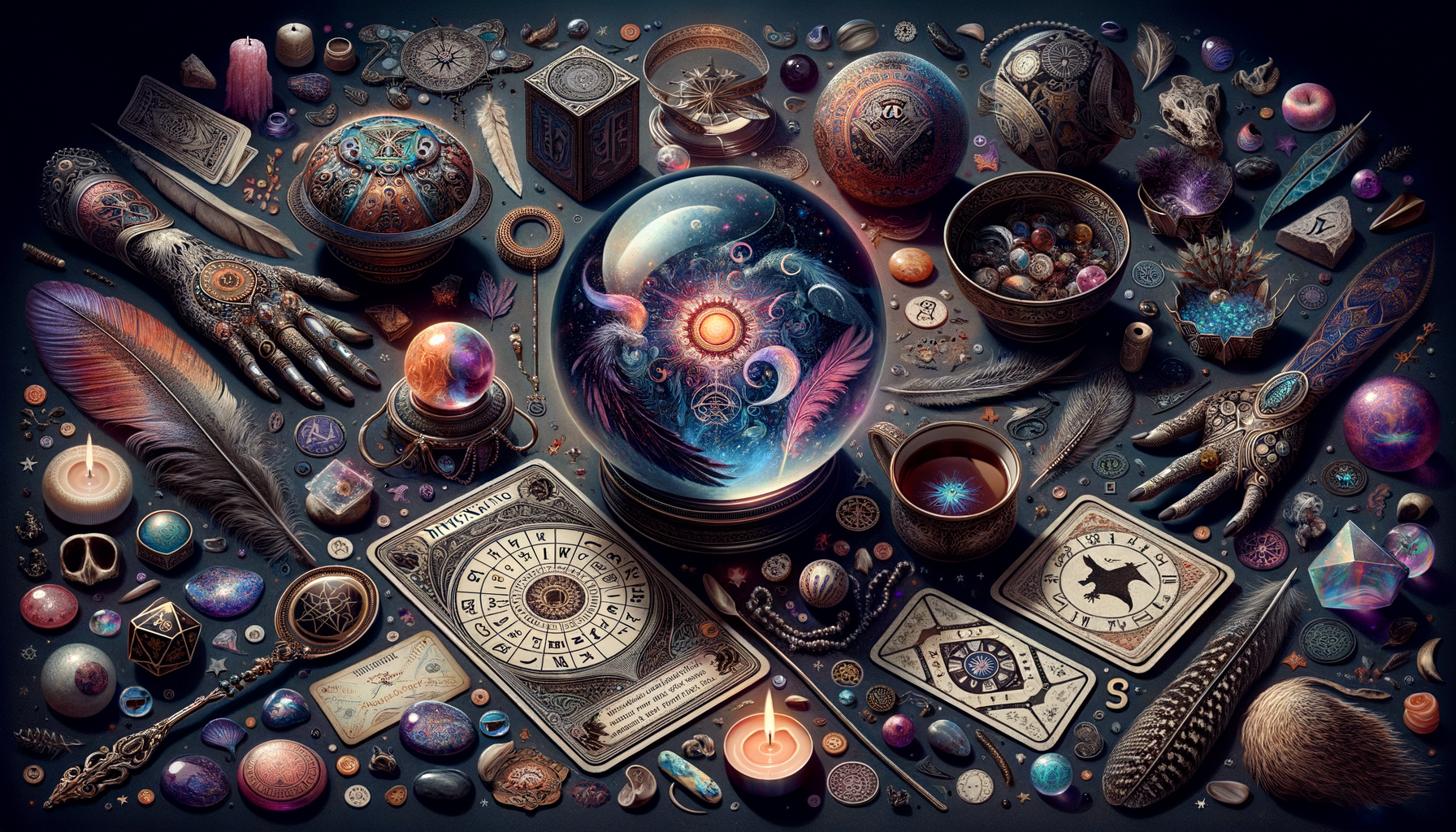The Historical Roots of Divination
Divination, the practice of seeking knowledge of the future or the unknown, has roots that stretch back to ancient civilizations. From the oracle of Delphi in Greece to the shamans of indigenous tribes, cultures worldwide have developed unique methods to peer into the mysteries of time. The Greeks, for instance, relied heavily on oracles and seers, individuals believed to have a direct line to the gods. These figures played crucial roles in decision-making processes, influencing everything from political strategies to personal choices. Similarly, the Chinese developed the I Ching, an ancient divination text that has been used for thousands of years to gain insights into the future. This method involves throwing coins or yarrow sticks and interpreting the resulting hexagrams. The diversity of these practices highlights humanity’s enduring fascination with the future, a theme that continues to resonate today.
Astrology: Mapping the Stars
Astrology is one of the most popular and enduring forms of divination, with origins dating back to the Babylonians. This practice involves studying the positions and movements of celestial bodies to gain insights into human affairs and natural phenomena. Astrology operates on the belief that the alignment of stars and planets at the time of one’s birth can influence personality traits and life events. While some view astrology as a pseudoscience, its appeal remains strong, with millions consulting horoscopes and astrological charts. Astrology’s widespread popularity can be attributed to its accessibility and the personal connection individuals feel with their astrological signs. Despite scientific skepticism, astrology continues to capture the imagination, offering a blend of cosmic wonder and introspective reflection.
Tarot Cards: The Art of Symbolism
Tarot cards are a powerful tool in the realm of divination, known for their rich symbolism and intricate designs. Originating in the mid-15th century in Europe, tarot cards were initially used for playing games. Over time, they evolved into a means of divination, with practitioners using the cards to gain insights into the past, present, and future. A standard tarot deck consists of 78 cards, divided into the Major and Minor Arcana. Each card holds specific meanings, which are interpreted based on their position in a spread and their relationship to surrounding cards. Tarot readings are often seen as a form of storytelling, where the reader weaves together the narrative of the cards to provide guidance and reflection. This method’s allure lies in its artistic nature and the personal interpretation it invites, making each reading a unique experience.
Numerology: The Power of Numbers
Numerology is a divination practice that assigns mystical significance to numbers. It is based on the idea that numbers, particularly those related to a person’s birth date and name, can reveal insights about personality and destiny. This ancient practice can be traced back to Pythagoras, the Greek philosopher who believed that numbers were the building blocks of the universe. In numerology, each number is associated with specific traits and vibrations, influencing various aspects of life. For example, the number one is often linked to leadership and independence, while the number seven is associated with introspection and spirituality. Numerology offers a structured yet flexible framework for understanding oneself and the world, appealing to those who seek order and meaning in the chaos of life.
Modern Interpretations and Applications
In today’s world, divination practices have adapted to modern sensibilities, blending traditional methods with contemporary insights. The digital age has seen the rise of online tarot readings and astrology apps, making these practices more accessible than ever. Social media platforms have become spaces for sharing and discussing divination experiences, fostering communities of like-minded individuals. Additionally, many people incorporate divination into their wellness routines, using it as a tool for self-reflection and personal growth. While skeptics may dismiss divination as mere superstition, its enduring presence suggests a deep-seated human desire to understand and influence the future. Whether viewed as a spiritual practice or a form of entertainment, divination continues to captivate, offering a glimpse into the unknown and the promise of guidance on life’s journey.




Leave a Reply